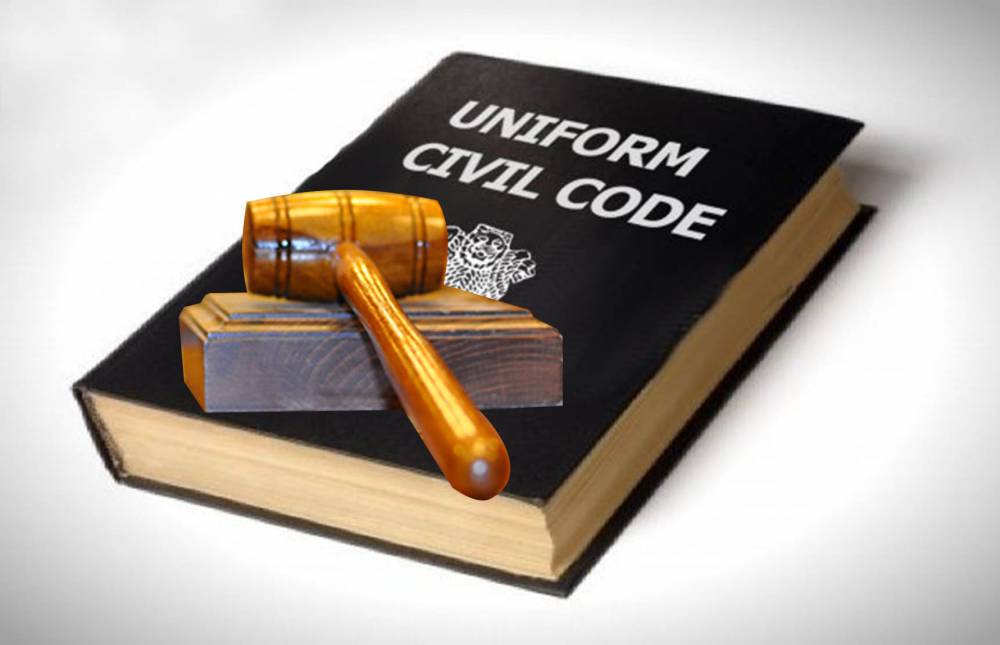-
Admin
- 20 September 2023
Sample Argument for Uniform Civil code
Explore the compelling debate surrounding the Uniform Civil Code (UCC) – a contentious proposal seeking a common set of laws for personal matters. Uncover the diverse perspectives, legal implications, and social impact in this thought-provoking discussion on the UCC.

Introduction:
The Uniform Civil Code (UCC) has long been a contentious issue in India, touching upon deeply rooted cultural, religious, and legal aspects of the country's diverse population. The concept of a uniform set of laws governing personal matters like marriage, divorce, and inheritance has its proponents and critics. In this argumentative essay, we will explore five compelling arguments in favor of the UCC and five equally valid counterarguments, shedding light on this multifaceted debate.
Arguments in Favor of UCC:
Promotion of Equality: A UCC would promote gender and social equality by ensuring uniform rights and legal provisions for all citizens, regardless of their religious or cultural background.
Simplified Legal System: Implementing a UCC would streamline the legal framework, reducing complexity, and making it more accessible to all citizens. This could lead to quicker resolution of legal disputes.
Individual Freedom: UCC would uphold individual freedoms, preventing personal laws from infringing upon fundamental rights. It would maintain the balance between religious beliefs and individual liberties.
Social Harmony: A UCC would contribute to social harmony by reducing conflicts arising from diverse personal laws, fostering a sense of unity among citizens.
Economic Development: A uniform legal system would create a more predictable and investor-friendly environment, potentially attracting investment and boosting economic growth.
Counterarguments:
Preservation of Cultural Diversity: Opponents argue that a UCC could erode the rich cultural and religious diversity of India by imposing a single set of laws on diverse communities.
Political Sensitivities: Implementing a UCC is a sensitive political issue, as it involves navigating the concerns and objections of various religious and cultural groups. Pushing for a UCC could lead to political unrest.
Resistance and Backlash: There is a risk of strong resistance from certain religious and conservative groups, potentially leading to social tensions and protests.
Complex Transition: Transitioning from personal laws to a UCC is a complex process, requiring meticulous planning and execution. Ensuring a smooth transition without adversely affecting citizens could be challenging.
Need for Public Awareness: Implementing a UCC would require extensive public awareness campaigns and education efforts to inform citizens about the changes in laws and their implications. Lack of awareness or understanding could lead to confusion and resistance.
Conclusion:
The debate surrounding the Uniform Civil Code is emblematic of India's complex tapestry of culture, religion, and law. It raises critical questions about equality, diversity, and individual rights. While proponents argue for the advantages of a uniform legal framework, opponents emphasize the importance of preserving cultural identity and sensitivity to diverse beliefs. The path to a UCC, if pursued, must carefully navigate these intricacies, finding a balance that respects individual liberties while recognizing the pluralistic essence of India.
Discover Excellence at AVKS ACADEMY
Visit our website : AVKS Academy One of the Leading Insitute for UPSC CAPF Exam Preparation in India.
or contact us today to embark on your journey to greatness. Your success story begins here!"
Contact : 7093777494 , 7404460797
TELEGRAM : https://t.me/avksacademycapfac
INSTAGRAM : https://instagram.com/avkscapf?igshid=MzRlODBiNWFlZA==

